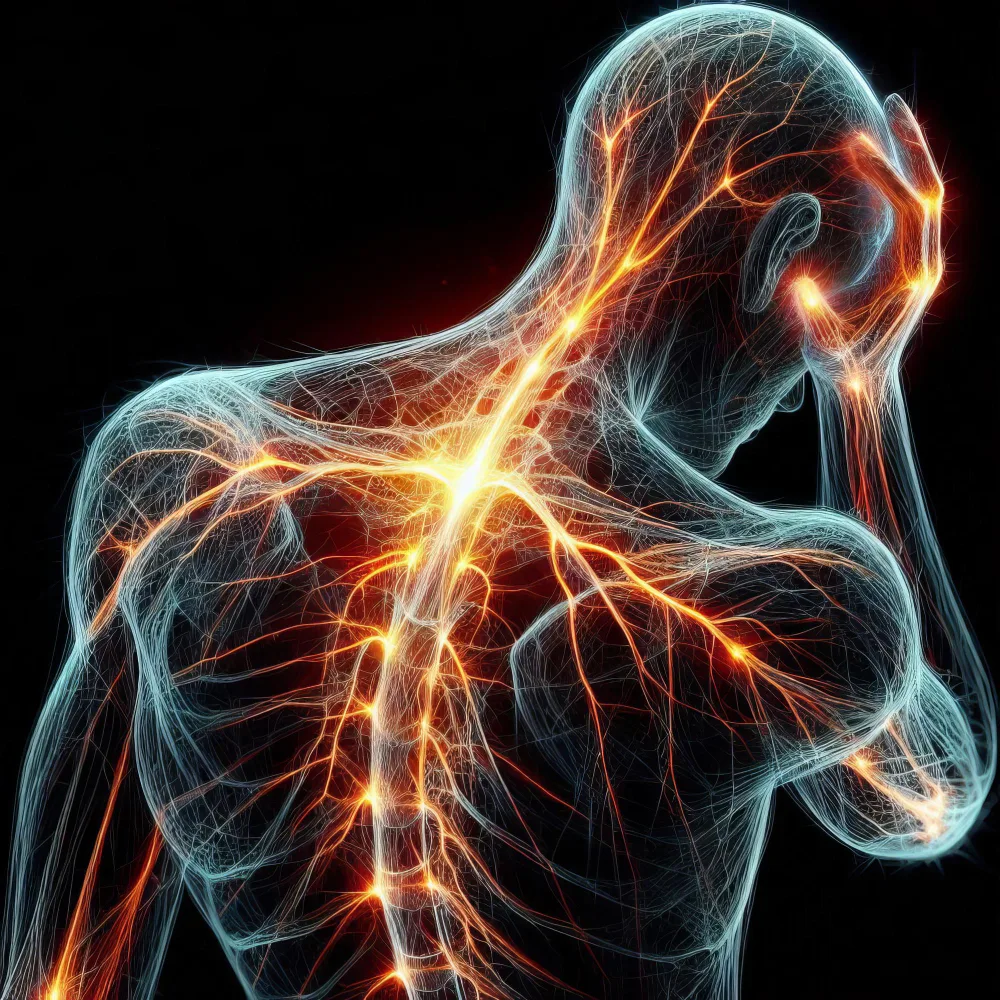NERVE PAIN
What is Nerve Pain?
Nerve pain, also known as neuropathic pain, occurs when the nerves themselves are damaged, irritated, or dysfunctional. Unlike typical pain caused by injury or inflammation, nerve pain arises from a malfunction in the nervous system. It is often described as burning, stabbing, tingling, or electric shock-like sensations. Nerve pain can be chronic and significantly affect quality of life.

Nerve Pain Treatment In Kenya
Nerve Pain Treatment
Effective treatment depends on the underlying cause and severity. Common treatment options include:
Medications:
Antidepressants (e.g., amitriptyline, duloxetine)
Anticonvulsants (e.g., gabapentin, pregabalin)
Topical treatments (capsaicin cream, lidocaine patches)
Pain relievers (less effective for nerve pain but sometimes used)
Nerve blocks or injections
Physical therapy
TENS (Transcutaneous Electrical Nerve Stimulation)
Psychological support or cognitive behavioral therapy (CBT)
Surgery – in severe cases, especially when caused by nerve compression

Symptoms of Nerve Pain
Burning or shooting pain
Tingling or “pins and needles” sensation
Electric shock-like jolts
Numbness in the affected area
Hypersensitivity to touch (allodynia)
Muscle weakness or twitching
Pain worse at night or with stress
Safe. Precise.Nerve Pain Treatment

Conditions Associated with Nerve Pain
Nerve pain may be linked to or caused by:
Diabetic neuropathy
Shingles (postherpetic neuralgia)
Sciatica
Multiple sclerosis
Herniated disc or spinal stenosis
Nerve compression (carpal tunnel syndrome)
Trigeminal neuralgia
Injuries or surgery-related nerve damage
Alcohol abuse or chemotherapy side effects
How Nerve Pain is Diagnosed
Diagnosis typically involves:
Detailed medical history and symptom review
Neurological examination – testing reflexes, sensation, and strength
Electrodiagnostic tests (EMG/NCS) – to assess nerve function
Imaging (MRI or CT scan) – to check for nerve compression or structural causes
Blood tests – to detect diabetes, vitamin deficiencies, or infections
Skin biopsy – in some cases, to assess small fiber nerve density
Risks of Not Treating Nerve Pain
If left untreated, nerve pain can lead to:
Chronic, disabling pain
Sleep disturbances and fatigue
Depression, anxiety, and reduced quality of life
Decreased mobility and muscle weakness
Worsening of underlying conditions (e.g., uncontrolled diabetes)
Increased risk of injury due to numbness or loss of sensation
Ready to Take the Next Step?
Whether you have questions, need more information, or are ready to schedule a consultation, our team is just a message away. Let’s talk about how we can support your journey to better health through expert laparoscopic care.
